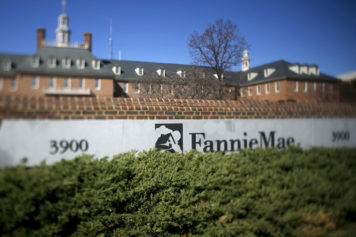Mortgage financing giants Fannie Mae and Freddie Mac are seeing a marked improvement in home values, which is significantly boosting their bottom lines even as Washington considers abolishing them. The news out of the two firms, which back the majority of U.S. mortgages, is the latest sign that the housing market may be turning a corner after years of being a drag on the economy.
After reporting a profit of $5.1 billion for the second quarter Wednesday — which came on top of paying a $2.9 billion dividend to taxpayers — Fannie Mae also appeared to make a case for its continued existence.
“With our high-quality new book of business and diminishing legacy expenses, Fannie Mae has strong potential earnings power that can deliver considerable value to taxpayers over the long term,” Timothy J. Mayopoulos, president and chief executive, said in a statement.
President Obama and congressional Republicans have agreed that the firms, with nearly 9,000 local employees combined, should be eliminated.
D.C.-based Fannie and McLean-based Freddie play critical roles in the nation’s housing market and the overall economy. The firms back more than half of all mortgages made by U.S. banks. They also guarantee mortgage-related investments that have been central to the Federal Reserve’s efforts to stimulate economic growth.
Obama has floated two possible directions for what would follow Fannie and Freddie’s elimination. In one scenario, the government would create smaller governmental or private entities that would support homeownership. In the second, the government would step back completely and rely on the private sector to fill Fannie and Freddie’s roles.
A senior Obama administration official said Wednesday that the administration stands by its prior views.
Congressional Republicans have favored proposals that simply shutter Fannie and Freddie. Lawmakers who have loudly criticized the mortgage giants did not respond to requests for comment Wednesday.
Fannie and Freddie, which were seized by the government in 2008, are a source of enormous controversy in Washington. The firms have cost taxpayers just shy of $150 billion…
Read more: Washington Post


